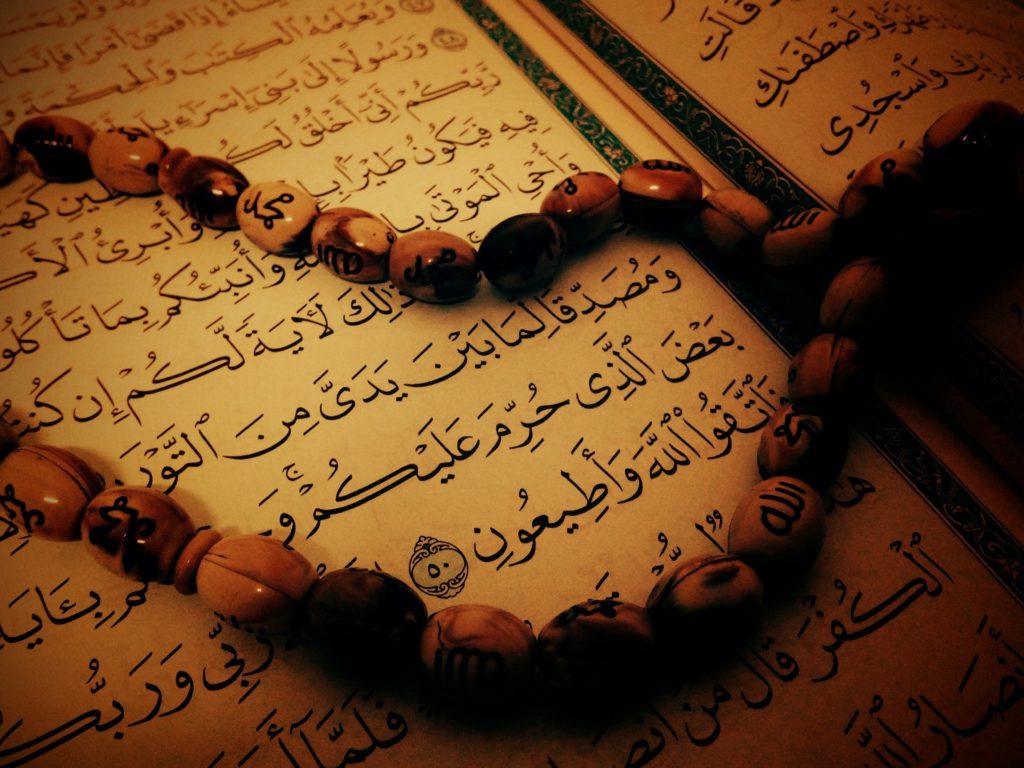In 1985 I was a brand new Muslim and Ramadan came in the summer. It was hot. It was humid. I was fasting. It was the most wonderful month of my life (up until that time). As years passed Ramadan moved into the winter; but every year when the temperature began to creep up I would sniff the air and feel that Ramadan was near.
The Islamic calendar brings with it that which helps us ‘sniff the air’. Every year the two months that precede Ramadan arrive to greet us and escort us into that most loving of months; Ramadan.
Rajab; a month of tawba (repentance) and Sha’ban; a month of reconciliation.
This year of 2012 Rajab will greet us on May 22nd, Sh`aban on June 21st, and Ramadan on July 20th (according to the calendar).
Long days of fasting are around the bend, short nights of fervent pleading, and a heart that beats with hope that this year – 1433 – our Ramadan will make real changes in our lives; drawing us to a place of certainty and faith that produces an energy of work and productivity.
Anas b. Malik (r) said that the Prophet (s) would say at the beginning of Rajab, “O God, bless us in Rajab, and Shaban and bless us in Ramadan..” (Musnad Ahmad)
Rajab is a sacred month. The practice of the sanctification of months goes back to Prophet Ibrahim (as) and was affirmed by Prophet Muhammad (s). These are months in which killing is forbidden and safety and peace reign.
Rajab is also the month in which Prophet Muhammad (s) was given the gift of the Isra and Mi’raj – his trip to Jerusalem and to the heavens.
Rajab, according to many of the ulama, is a month of repentance and forgiveness. If we are to consider that Ramadan is right around the corner, and that a requirement of our faith is tawba (repentance) than it makes excellent sense to utilize Rajab, a month of peace, to make peace with our Lord; to seek forgiveness, and to offer a complete tawba.
Tawba:
Allah (swt) says: {O you who believe, repent to Allah, a genuine repentance.}[1]
We who claim to believe are required to continuously repent from our sins, our mistakes, our shortcomings; all that which stands in the way of a life of joy and light under the shade of God’s pleasure. Too often we are so involved in seeing the wrongful deeds of others, that we have a limited view about our own shortcomings. Rajab offers us the opportunity to forget about everyone else’s sins for a while and focus on our own. It is worthwhile to spend some time before Rajab, in retreat and reflection.. Where are you with Allah? Where is Islam in your life? Compare your state this month with your state last year previous to Ramadan; are you closer to Allah or farther away?
Questions to ask:
1.Am I attached to a particular sin?
1.Do I read, watch, or listen to haram?
a. reading a book or watching a movie that is sexually explicit (not only porn but so called ‘soft porn’ and even lesser ‘chick lit’ type books),
b. listening to music that glorifies haram acts and turns one’s heart towards that which is haram.
c. watching Youtube videos that glorify haram, or insinuate it, or are in any way outside of Islamic boundaries.
2. Is there a basic of Islam that I take lightly (don’t find very important)?
a. Do I sleep through fajr prayer every day?
b. Do I wear clothing that the Prophet (s) would disapprove of?
c. Do I neglect zakat?,
– saying to oneself “I pay a lot in charity- I don’t have to worry about zakat.” Yet, zakat is the fard, and charity is the sunnah or extra deed
3. Do I neglect my basic duties?
a. If I am a student do I neglect my studying; leaving it to the last minute and “cramming?”
b. If I am an employee am I often late to work? Or do I barely do my job, taking as many breaks as possible?
c. Regarding any relationship (marital, parental, or friendship) do I give my all; or do I hold back checking to see what I’m getting in return?
4. Do I have my priorities straight?
a. How do I spend my time? Do I waste more time than I use productively?
b. Do I measure ideas and lifestyles against Islam instead of the other way around?
c. Do I spend more time on Facebook than on religious duties?
5. Is there something in my very character that I need to work on?
a. Am I stubborn?
b. Am I stingy? Stingy with money? Stingy with emotion? Stingy with time?
c. Am I cynical? Do I have a negative outlook on life and therefore on the blessings of Allah?
We could go on and on asking questions that bring us to think and talk about things each of us need to make tawba for. And the truth is that tawba is never ending because we, as human beings, make mistakes; we fall short; we sin. It is true that along the way our sins and mistakes will (should) change as we learn to avoid some, and then find ourselves falling into others; and indeed we must focus on learning to avoid those sins that hurt others, and to fill our lives with the deeds that help others; but there will never come a day when any of one us reaches perfection.
Thus Rajab is a gift to us; a time to reflect on the past year – to seek forgiveness from Allah (swt), to wash away the darkness of distance, and wrongdoing.
At rabata.org we will add a new counter – The Istighfar Counter. The Prophet (s) said, “Oh people, repent to Allah; indeed I repent one hundred times per day.” Thus the repetition of ‘astaghfirullah’ was a habit of our Prophet (s) – he who was forgiven and promised the reward of his Lord. Over time the ulama have, through experience, set the number 70,000 as a goal to be reached in the month of Rajab. Thus our goal at rabata.org is that each of us reaches 70,000 istaghfar this month.
In order to reach 70,000 istaghfar in the month of Rajab, you will need to do approximately 2,500 per day. These can be divided into the prayers (500 each prayer) or the morning and evening (1250 morning, and 1250 evening) or just done throughout the day.
As we make our individual repentance, let us keep in mind that the forgiveness of each of us adds to the collective blessing of the ummah – and we will try to reach a larger group goal of 10,000,000 Istighfar. It is my personal hope that Allah (swt) will accept our repentance, forgive us, and bless us, our families, and the countries we live in, with His miracle.

